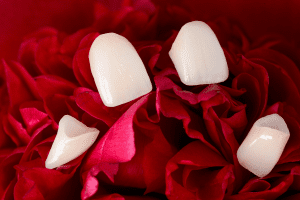Dental Veneers: Pros and Cons


Dental veneers are one of the simplest and quickest ways to permanently improve your smile. Dental veneers, which are made of wafer-thin porcelain or composite resin, conceal flaws in your teeth such as discolorations and chips.
Dental veneers are no different. They have benefits and drawbacks like any other dental procedure. Understanding the advantages and disadvantages of dental veneers can help you decide if they are the best option for changing the appearance of your smile. If you are looking for the best dentists in Eugene, you have come to the right place. We would love to show you all the ways we can keep you smiling!
When compared to other cosmetic dental procedures, veneers offer a lot of benefits.

Most cosmetic dental problems can be resolved by a cosmetic dentist using teeth whitening, teeth straightening, and other dental operations, but in certain circumstances, treatment is insufficient to fully resolve the condition. For example, whitening may not entirely eliminate stains, or a malformed tooth may be too small.
Dental veneers totally conceal cosmetic flaws by covering the surface of the teeth. Dental veneers can often restore a bright, healthy smile more effectively than other cosmetic dental operations.
When it comes to dental veneers, unlike many other types of cosmetic dentistry, you can choose between porcelain and composite resin. Composite resin veneers are less attractive, less durable, less stain-resistant, glossier, and less natural-looking than porcelain veneers, but porcelain veneers are also more expensive.
Dental veneers provide you a beautiful, natural-looking smile. Porcelain possesses properties that are similar to tooth enamel in terms of light reflection. Composite resin enables your dentists to precisely mould and shape the veneer to match your other teeth. Porcelain and composite resin veneers, when created by a skilled cosmetic dentist, appear to be genuine teeth.
Porcelain and composite resin are stain-resistant, so coffee, tea, fruit drinks, and other staining foods and beverages won’t stain your dental veneers. Stain-causing substances simply roll off porcelain veneers or settle on the surface of composite resin veneers, where they can be easily brushed away.
In just one or two visits, veneers deliver immediate effects. Other forms of dental restorations might take weeks or months to complete, and they normally necessitate several visits to your dentist. Porcelain veneers can be applied in two visits, while composite resin can be applied in just one.
Veneers are incredibly flexible; they can conceal obstinate stains and discolorations, conceal cracks and chips, and give deformed or slightly crooked teeth a new shape. Veneers can be used instead for teeth whitening, crowns or caps, and even modest tooth straightening.
Veneers are less expensive than other types of dental restorations, such as crowns. Veneers are also long-lasting, so compared to teeth whitening or other cosmetic dental procedures that require recurring treatments to preserve the results, the investment in veneers lasts a long time.
Dental veneers are simple to apply and require only one or two visits to your dentist. To make place for the veneers, your dentist removes a small piece of tooth enamel before placing the porcelain wafers or composite resin on the front surface of your teeth. When compared to crowns, which require your dentist to remove far more tooth enamel, this is a minimal amount of preparation.
Dental veneers have the same appearance and feel as genuine teeth. The effects can last for years as well — porcelain veneers typically last 7 to 15 years for most people, while many patients have dental restorations that last much longer. Your dentist may propose changing the veneers every 15 years or so to maintain them looking their best.
Veneers don’t require any special maintenance; just brush twice a day and floss once a day as usual, and visit your dentist for regular exams.
While veneers are mostly used to cover discolored or disfigured teeth, some varieties are sturdy enough to support slightly damaged teeth. Pressed porcelain veneers, for example, are a cost-effective alternative to dental crowns and are durable enough to last for decades.
While dental veneers have many advantages, such as a more attractive smile with little effort, they also have certain drawbacks. For the vast majority of people, the advantages of dental veneers much exceed the disadvantages.
Placing dental veneers necessitates the removal of a thin layer of enamel to make room for the veneer — this is an irreversible procedure because the enamel cannot be replaced after it has been removed.
Enamel protects teeth from hot and cold, and removing it might make teeth more temperature-sensitive.
Dental veneers can improve the appearance of teeth that have been minimally damaged, but they cannot fix the appearance of teeth that have been substantially damaged. Dentists may propose dental crowns to cover the entire tooth in certain circumstances.
Veneers have a shorter lifespan than bridges and dental crowns.
Because dental veneers are so thin, they are prone to breakage. Porcelain veneers, for example, can chip and crack, whereas composite veneers can stain, chip, or crack.
When compared to teeth whitening and other cosmetic dental procedures, the best veneers may be more expensive.
Consult your cosmetic dentist in Eugene, OR for more information on the benefits and drawbacks of dental veneers. Quest Dental’s team of dPros and Consental specialists can help you decide if dental veneers are right for you.
We look forward to meeting you. Call 541-688-7278 or request an appointment online to set up your first visit. We’ll be in touch soon.